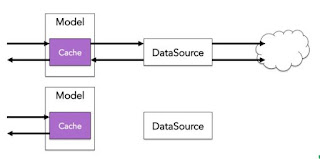Programmers are a fickle bunch. One day they’re all using Java, and the next day Python is the hot new thing. While developers indelibly will dabble in different languages, we’re now seeing them do similar things with databases, particularly those of a NoSQL bent. The database explosion benefits developers, but it’s a headache for the admins tasked with managing the stuff.
Time was, you installed the Oracle database and were happy with it, damn it. Oracle defined what you could do with the data, and your developers worked within those bounds. While the department across the hall may have used another database, such as Postgres or DB2, it was not radically different. It may have done some things differently and had its own particular schema, but it was still SQL at the end of the day. Everybody was on the same page.
My, how times have changed. Thanks to the rise of big unstructured data, social media, and the changing nature of Web-based consumer apps, the capabilities and requirements of databases have mutated beyond what relational databases can comfortably handle, and as a result, both the type and number of databases has exploded.
The data is made available through a JSON graph, using the DataSource interface having the following asynchronous operations: get, set, and call. The client can traverse the graph using JavaScript paths similar to when accessing the JSON data directly. For demonstration purposes, we’ll consider this minimal JSON object:
Netflix has been using Falcor, in various iterations, for a little over three years. The decision to create Falcor stemmed from a need to free up developers from worrying about data access. With no viable alternative in existence, Netflix poured a considerable amount of effort into creating its own platform. So why open-source that platform? We posed that question to Husain.
“What we really thrive on [at Netflix] is selling great experiences in terms of watching titles. We’re not selling software. We’re taking the good engineering that we do in-house and releasing it into the community… often doing good things helps you, and that’s what Netflix’s interest [is] in open-sourcing Falcor.”
Time was, you installed the Oracle database and were happy with it, damn it. Oracle defined what you could do with the data, and your developers worked within those bounds. While the department across the hall may have used another database, such as Postgres or DB2, it was not radically different. It may have done some things differently and had its own particular schema, but it was still SQL at the end of the day. Everybody was on the same page.
My, how times have changed. Thanks to the rise of big unstructured data, social media, and the changing nature of Web-based consumer apps, the capabilities and requirements of databases have mutated beyond what relational databases can comfortably handle, and as a result, both the type and number of databases has exploded.
The data is made available through a JSON graph, using the DataSource interface having the following asynchronous operations: get, set, and call. The client can traverse the graph using JavaScript paths similar to when accessing the JSON data directly. For demonstration purposes, we’ll consider this minimal JSON object:
Netflix has been using Falcor, in various iterations, for a little over three years. The decision to create Falcor stemmed from a need to free up developers from worrying about data access. With no viable alternative in existence, Netflix poured a considerable amount of effort into creating its own platform. So why open-source that platform? We posed that question to Husain.
“What we really thrive on [at Netflix] is selling great experiences in terms of watching titles. We’re not selling software. We’re taking the good engineering that we do in-house and releasing it into the community… often doing good things helps you, and that’s what Netflix’s interest [is] in open-sourcing Falcor.”


